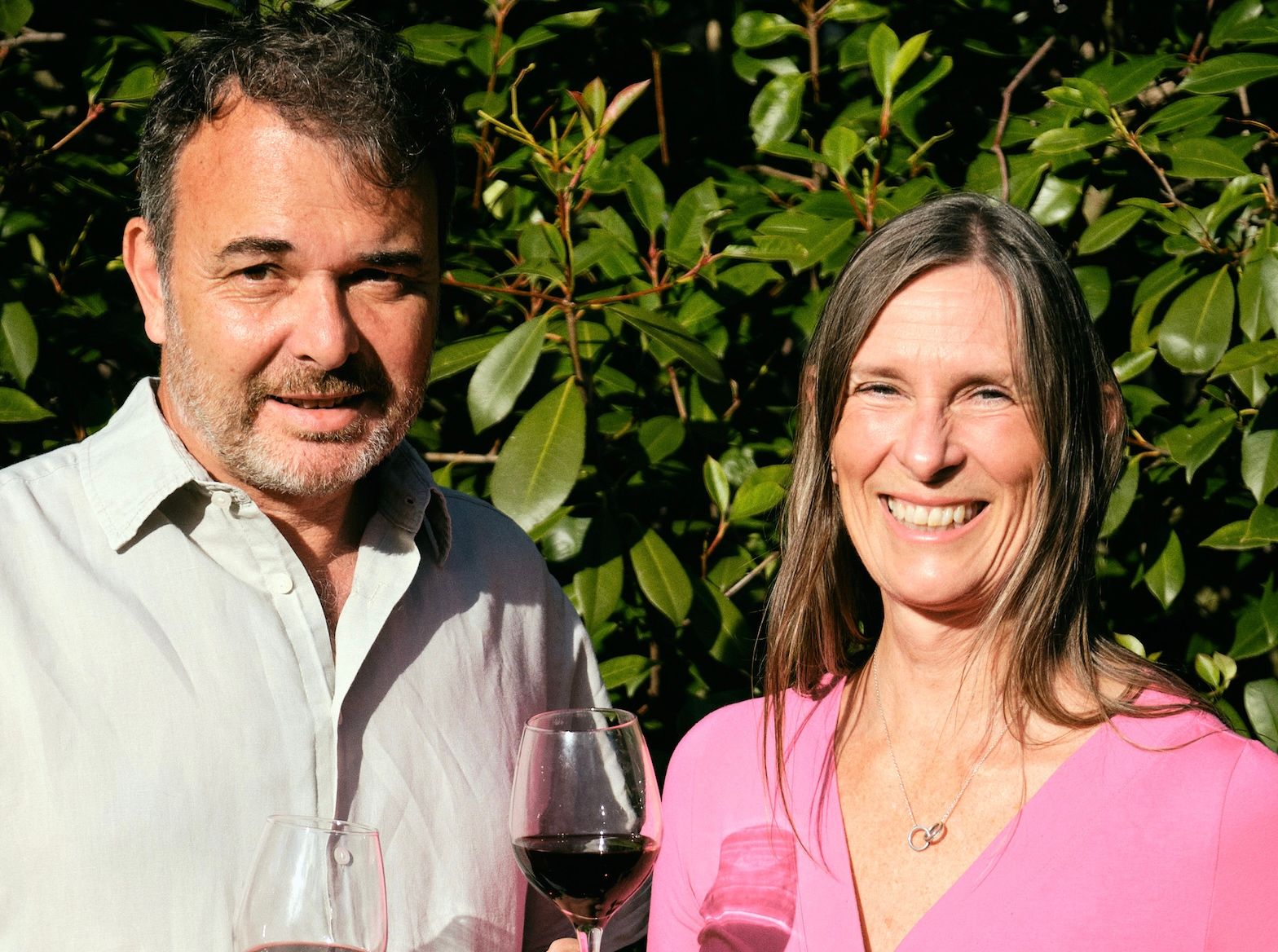What is the new book you have been working on?
It’s Rooted in Change: The Stories behind Sustainable Wine. It’s intended as an accessible introduction to the subject – basically the first to date. It's also unusual because while wine writers normally just write about wines and where and how they’re made, this book tackles the environmental impact of the whole industry, from grape to glass. That includes packaging, distribution and the circular economy, as well as social sustainability aspects such as labour conditions.
Why did you want to collaborate on this together?
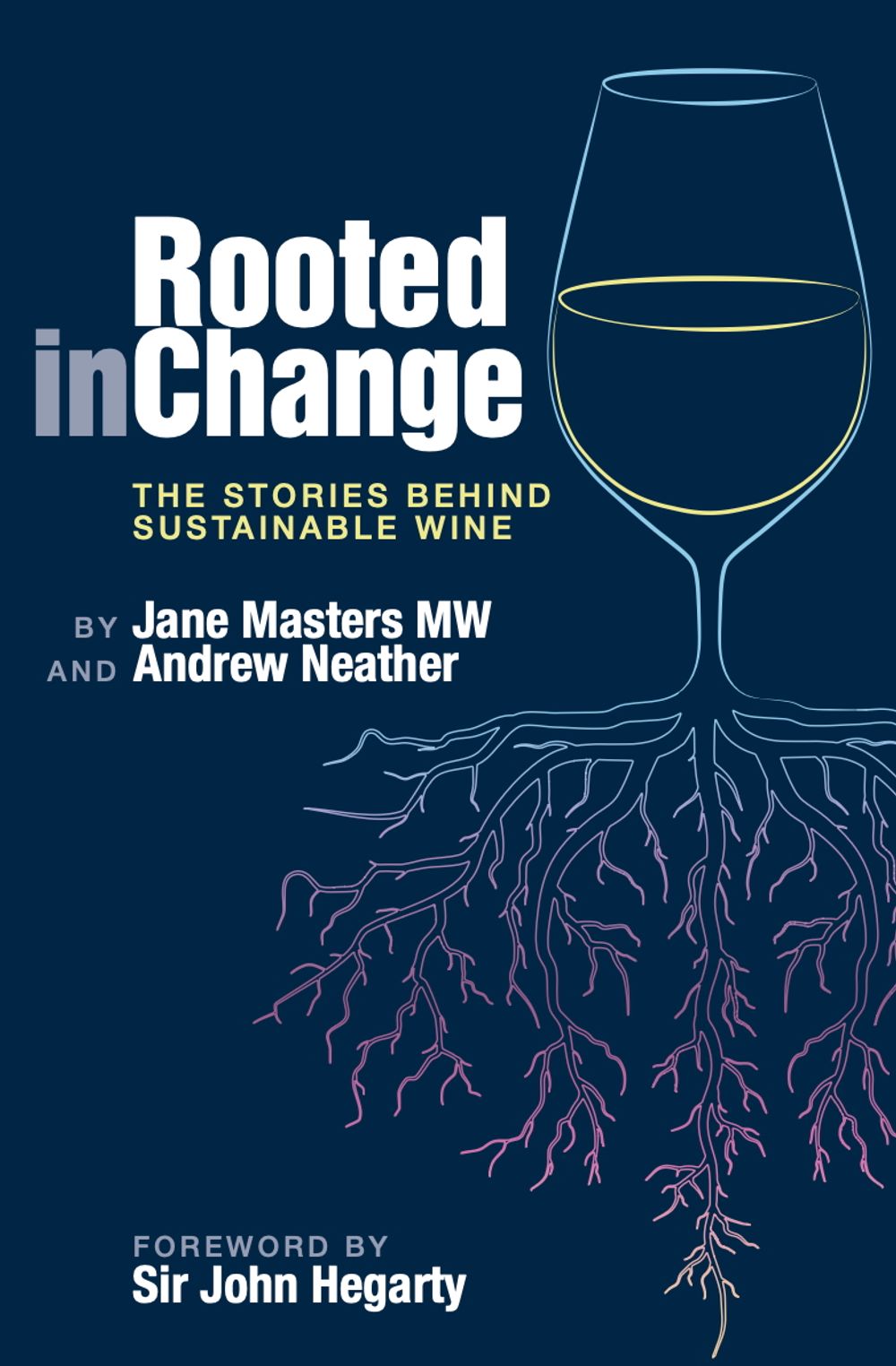
Jane Masters MW and Andrew Neather's new book on how the wine industry is tackling sustainability
We’re both wine professionals and are both profoundly concerned about the impact of climate change. We independently met our publisher, Hermione Ireland of the Academie du Vin Library, and discussed a book. Then she asked each of us how we fancied the idea of co-writing a book, and introduced us.
It’s been a great match of skills: I’m a professional journalist with a good knowledge of wine, whereas Jane isn’t a writer but has vast expertise on winemaking and on the impact of climate change.
What was the process of researching and bringing the book together?
Jane had actually started writing a book a couple of years previously but had had to shelve it. We started by agreeing structure and by me heavily editing what she had already written, and then researching and writing more.
Then at the start of this year I went off on several months of research around the world – California, Italy, France, Portugal, South Africa, Chile, Argentina and Greece – adding to the book as I went along. Then on my return we had an intensive couple of months writing and editing. It’s been a hell of a schedule but we delivered on time in June.
What were your main aims of writing it and who is the book aimed at?
We wanted to provide an introduction to the subject that would be accessible to people who weren’t either wine or environmental specialists – as well as, of course, those with a greater knowledge of either subject.
We don’t pretend to put forward easy solutions in the book, basically because there aren’t any. But a first step in making anything more sustainable is understanding the challenges, and how things are connected – and that’s what we hope people will take away from it.
It also has a bigger relevance than just wine. You could take this kind of approach, looking at a product from origin to it sitting there on your table, for just about anything – and we need to start thinking like that if we’re going to respond effectively to climate change.
Are you overall optimistic or pessimistic about wine’s ability to tackle sustainability and why?
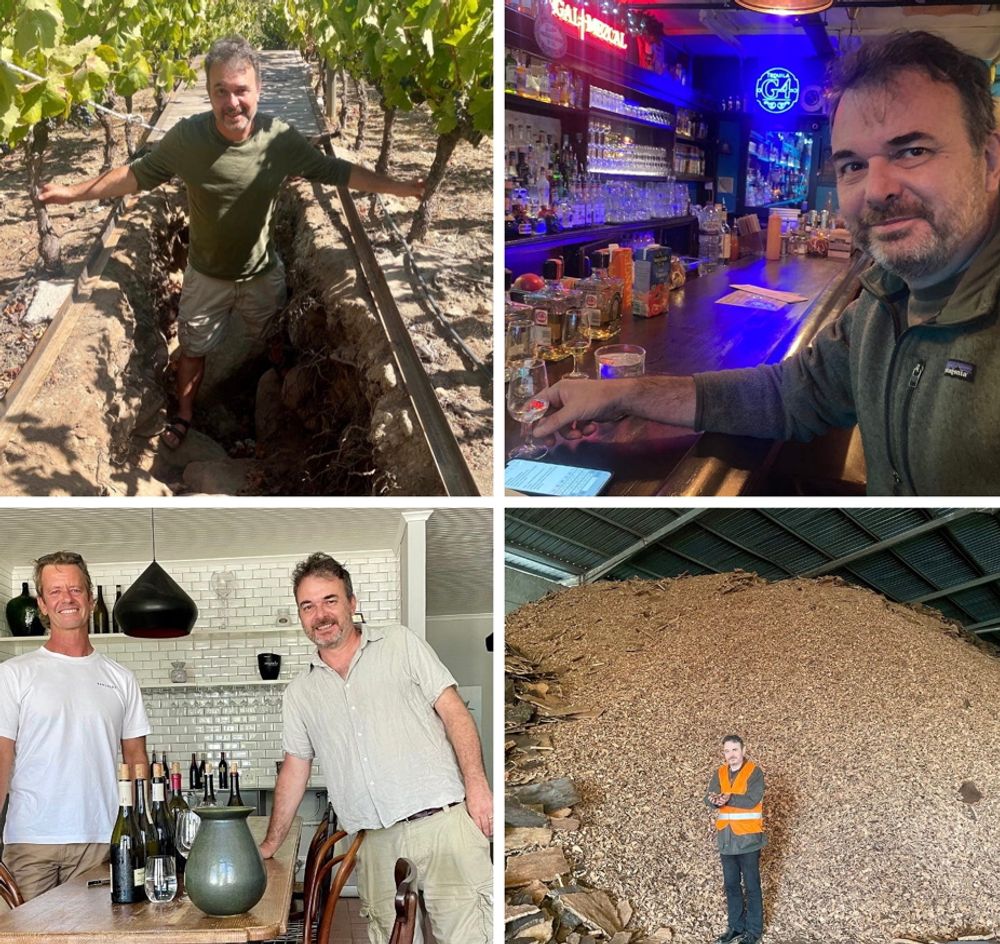
Andrew Neather spent a year visiting producers and winemakers around the world to find out what steps they are taking to tackle sustainability
It’s enormously challenging, and a lot of the things that need to happen are beyond the control of the wine trade. The big policy changes on emissions, for instance, need to be agreed between governments, to be effective – which is the point of the COP meetings and so on.
Those agreements face a tough battle, of course – not least when you’ve got President Trump claiming that the whole idea of climate change is a con. But those efforts continue, and the momentum is in the direction of greater sustainability.
Renewable energy is past the crucial tipping point now: it’s cheaper than other forms of generation, and attracting the lion’s share of commercial investment.
As for the wine trade, there are plenty of things that it can do – for example around packaging, transport, energy. It’s daunting, to be sure. But there are so many great examples out there of producers and businesses thinking innovatively and doing the right thing. And that does make me hopeful.
Where do you think the biggest successes have been so far?
Organic agriculture has made big advances: a quarter of vineyards in Austria are organic and getting on for a quarter in France. There’s a long way to go, but that sort of progress on organics would have been unimaginable 25 years ago.
The growth of renewable energy in the industry is impressive: even in a cooler climate like Britain, last year 40% of wineries generated at least some of their own energy, usually by solar.
Then there is all the work going on around packaging. The Sustainable Wine Roundtable’s Bottle Weight Accord, worked out with major retailers and importers, sets a new lightweight standard of 420 grammes for still wine bottles, to be reached by the end of next year. That will have a really significant impact on carbon emissions.
Which sectors of the industry have the most to do?
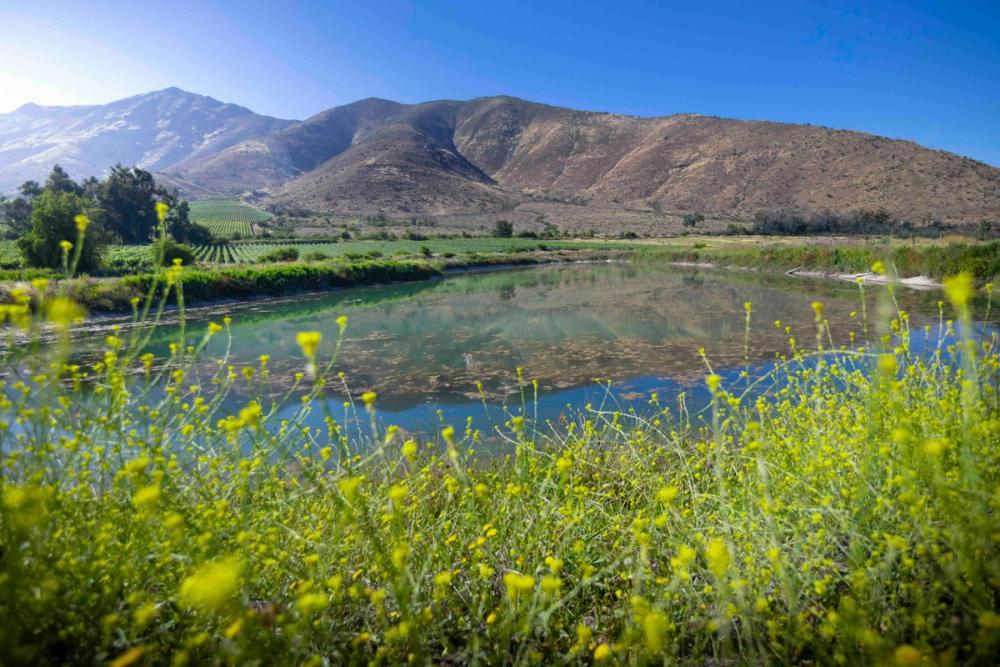
Leading producers around the world - like here at Santa Rita in Chile - are stepping up and showing what can be done to make the industry and process of making wine as sustainable as possible
The wine industry still uses an awful lot of pesticides, especially fungicides against mildews. We could do a lot better. We still need a bigger shift on packaging: lots of everyday wines that will be drunk within 48 hours of purchase could go in bag in box or plastic solutions such as Packamama’s rPET bottles, with much lower emissions than glass – yet around 90% of wine sold in the UK still comes in glass bottles.
And on social sustainability, I think we’re really only just waking up to some of the labour abuses out there – there have been well-publicised cases in Champagne recently.
What is the single most important thing that you think wine importers and retailers can do to be more sustainable?
Because packaging is such a big part of wine’s carbon footprint – 40% of a bottle of wine’s footprint is just the glass bottle – reducing emissions from that but switching to things like bag in box is probably the biggest single thing.
But I would stress that we need holistic solutions – and once businesses start looking at how to improve their sustainability across the board, they see that it’s not enough just to go for one big hit.
What do you think the wine world will look like in 2050 if it doesn't manage to green itself?
If we don’t come up with solutions to climate change for our economies and societies, and change continues at the present rate – or speeds up – then by 2050, there’s a serious question whether you’re still going to be able to make wines in classic regions such as Bordeaux and Burgundy that taste the way those wines should. We’ve already got Côte d’Or reds at 15%.
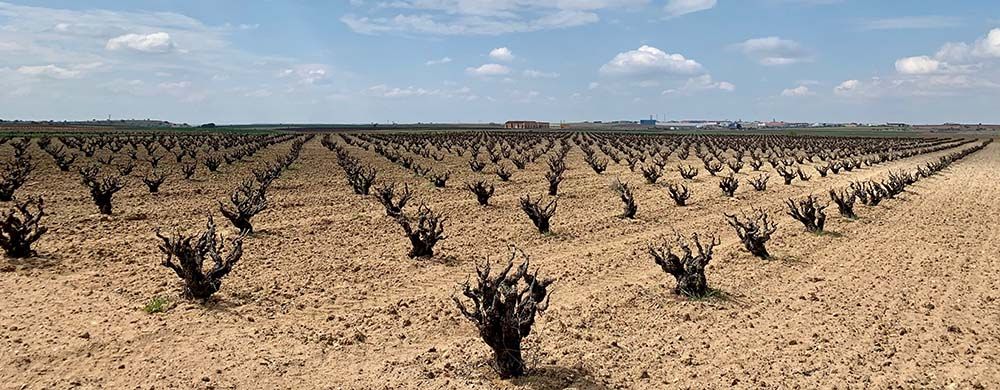
Drought and how the wine industry manages and uses water is going to be one of the industry's biggest challenges
Drought will severely disrupt or even end grape growing in the main wine regions of Chile, and in parts of Australia, South Africa, Catalonia and Greece.
The UK won’t be so severely impacted, and it will, on balance, get easier to ripen grapes reliably. But there will be major downsides here in terms of an extended growing season meaning vines are hit by more frosts, as well as very heavy rain and other extreme weather in the summers.
What is it that makes you passionate about sustainability when it comes to making and selling wine?
It’s partly because wine is a natural product that reflects the land – so if you want it to taste like where it’s from, that’s going to get completely bent out of shape by climate change.
But also, quite simply, we all have an obligation to act on climate change and sustainably on our home turf – and ours is the wine trade! This is what we know and what we think we’ve got the best chance of changing.
Wine producers, importers and retailers are facing unprecedented challenges in terms of costs and the trading environment. How realistic is it to expect them to take on new sustainability commitments which will probably cost them money?
We’re only too aware of the sorts of pressures the whole of the trade is under now – inflation, falling sales and so on. But being more sustainable doesn’t necessarily cost more. For instance, lighter-weight packaging will get cheaper than heavier solutions, as its production becomes the norm: if the bottle you choose to source weighs half what another one does, there should – soon, if there isn’t yet – be a cost benefit to that.
Or take shipping by rail, for instance, which is cheaper than doing it by road: big importer Liberty Wines found this when they switched to rail over the past decade. And for decisions requiring capital expenditure – say a new tractor, or solar panels – a farmer is obviously going to wait until their current equipment starts wearing out before replacing it, and that’s fine.
We just want them to be able to make more sustainable choices when they need to.
The wine industry's carbon emissions are pretty negligible next to an industry like, say, steel or airlines. So why are they a priority?
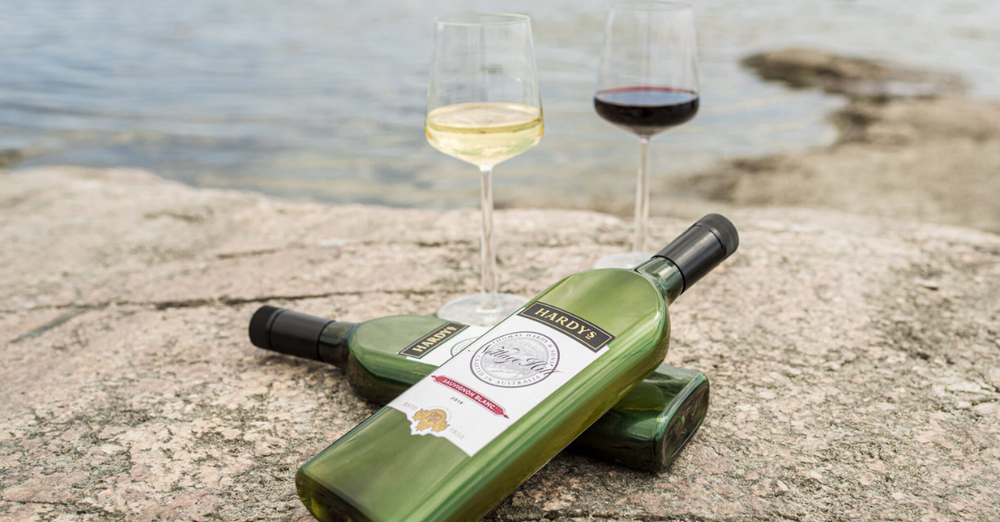
Flat bottles and the work by companies such as Packamama to take glass off our wine shelves is a key step forward
It’s true that the wine industry’s overall emissions are low compared to energy-intensive industries. But for a start, that’s where we work, and everyone has to start from where they’re at. Also it’s irresponsible to duck out of doing the right thing just because there are dirtier industries out there. It’s like car drivers who moan about emission controls like London’s ULEZ scheme on the grounds that buses are worse polluters. You need to put your own house in order first.
What are the commercial advantages for retailers in focusing more on sustainable wines?
All of the polling suggests that people want to buy more sustainably made products.
It’s questionable how far those aspirations match up with their actual buying habits – at least now. But I think over time, sustainable provenance is only going to become more important. And in terms not just of the wines you sell but the way you run your whole business, looking like you don’t care is going become a worse and worse look.
* You can buy Rooted in Change: The Stories behind Sustainable Wine here which is published by Academie du Vin Library. Readers of The Buyer can receive a discount by using the code BUYER15 at the point of puchase.
